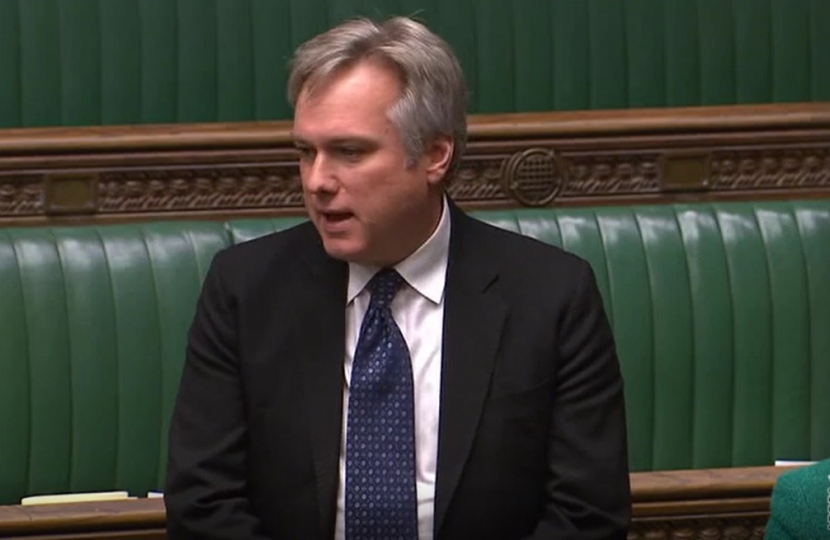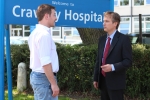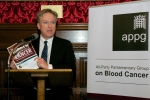
Cancer can strike anyone at any moment. The thoughts of the country are with King Charles III following the announcement from Buckingham Palace of his own cancer diagnosis.
It is poignant that His Majesty made clear his hope that this disclosure may assist understanding for all who are affected by cancer.
Most, if not all, families throughout the country have had some form of experience of cancer: if not having the condition themselves then through providing practical and emotional support.
Ahead of World Cancer Day, 4th February, I met Radiotherapy 4 Life in Parliament to reaffirm my support for the #CatchUpWithCancer campaign.
Radiotherapy uses radiation to kill cancer cells, may be used in the early stages of cancer or after it has started to spread, and has an important role to play in enhancing patient outcomes.
Government has invested £162 million in the five years to 2021 in radiotherapy equipment, enabling replacement or upgrades of approximately 100 radiotherapy treatment machines: equal to around a third of such machines.
We know that cancer can come at any age and, whilst rare, it is the leading cause of death in children aged one to 14, and one of the biggest causes of death in young people in the UK.
It is a welcome step that the Government has confirmed the launch of the Children & Young People Cancer Taskforce: an important opportunity for action and will consider genomic treatments, new diagnosis tools, research and innovation.
The inquiry will look at DNA testing and treatment, and a focus on access to high-quality personalised therapies, new treatments and personalised medicines.
Early diagnosis is a cause I have long-pursued, including when I chaired the All-Party Parliamentary Group on Blood Cancer. This new Taskforce will also look at how children can have the best chance to beat cancer through earlier diagnosis as well as improving training, exploring how AI can further support the workforce, and raising awareness so people come forward sooner.
The Taskforce has the opportunity to deliver real and lasting change to improve cancer services by bringing together Government, NHS, cancer charities and clinicians.
From April 2023, Crawley Hospital diagnostic testing capacity has been increased and the number of patients needing to travel to East Surrey Hospital for CT scans, MRI scans, x-rays, ultrasounds, as well as blood tests and respiratory tests has reduced.
This comes as planning continues for the new Community Diagnostic Centre at Crawley Hospital.
The Sussex Health & Care Integrated Care System have confirmed that in its first 12 months, 30 per cent more patients who need a diagnostic test and live in Crawley will be able to receive one at Crawley Hospital: with this percentage increasing each year.
Henry Smith MP



